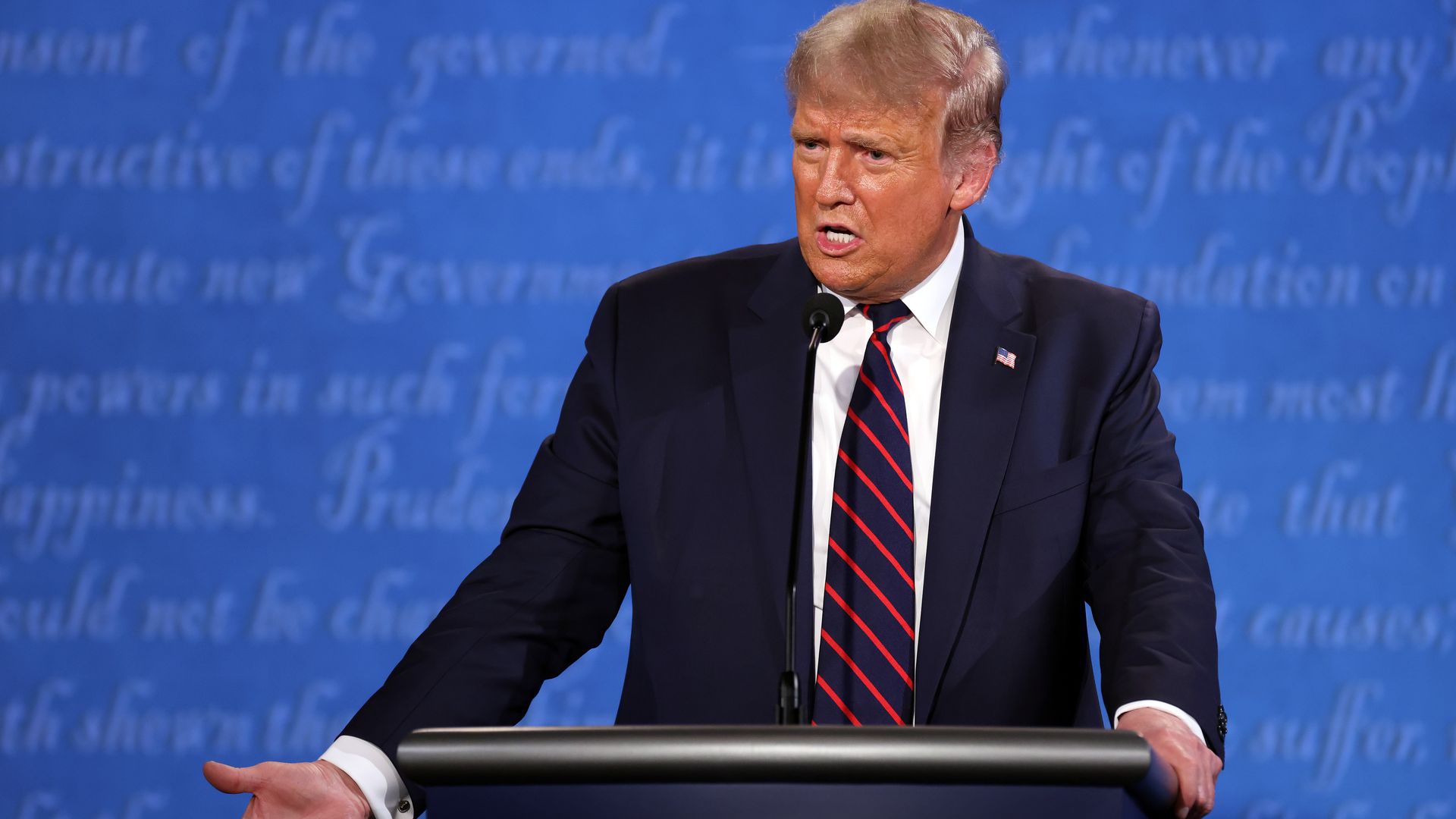Trump's business dealings raise security concerns, too
Add Axios as your preferred source to
see more of our stories on Google.

Photo by Win McNamee/Getty Images
Even before the recent New York Times bombshell on Trump's taxes, the president's financial entanglements raised the specter of foreign influence.
The big picture: Although Trump has said he turned over day-to-day management of the Trump Organization to his two sons, he hasn't divested from any of his businesses. Revelations from the Times report add to concerns that this state of affairs is shaping elements of Trump's foreign policy.
Catch up quick: National security questions have been raised about:
- Foreign delegations or foreign-linked lobbyists staying or hosting events at the Trump International Hotel in Washington, Trump’s Mar-a-Lago resort in Florida, or at his golf clubs.
- Such figures buying or leasing apartments at Trump-owned buildings or renting commercial office space at these facilities.
- Powerful governments awarding foreign trademarks to Trump-branded entities.
- Trump drawing revenue from licensing deals for properties abroad.
What's new: The Times report deepens and substantiates this picture, showing that in the president’s first two years in office, "his revenue from abroad totaled $73 million," including "$3 million from the Philippines, $2.3 million from India and $1 million from Turkey" in revenue from licensing deals.
- It also shows that, in the past, the Trump Organization made over $5 million in a botched hotel deal in Azerbaijan — a project spearheaded by a family with links to Iran’s Revolutionary Guard — and $3 million on a licensing deal for a hotel in the United Arab Emirates.
Trump's business interests in the Philippines, Turkey and India also cloud the relationship between the U.S. and these countries, says Polymeropoulos.
- "[Philippine President Rodrigo] Duterte and [Turkish President Recep Tayyip] Erdoğan at times act inimical to U.S. interests, yet Trump barely pushes back. And we have tilted decisively toward India under the Trump administration."
- Even if these policy choices are entirely divorced from Trump’s personal finances, says Polymeropoulos, the “bottom line is that the income just makes anything that happens suspect."
What's next: The post-presidency briefings that will be available to Trump will, among other types of key data, contain highly sensitive economic intelligence, says Wise. "It will give him extraordinary advantages over other competitors."
Go deeper: The national security risks hiding in Trump's debts
